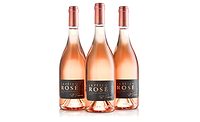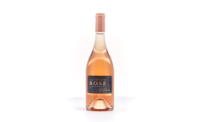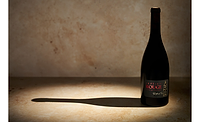Up Close With
La Fête du Rosé promotes inclusiveness
Rosé wine brand invites all to join the party

In the 1982 Alabama classic “Gonna Have a Party,” the band invites folks to rock out while having “a good-time jamboree,” urging listeners to “come on along with me.” At its core, La Fête du Rosé, the first entirely black-owned rosé wine brand emanating from St. Tropez, France, wants to be an inclusive brand for all — African Americans, Latinos, Caucasians, etc., as it celebrates diversity and invites everyone to join the party.
On the market since last summer, La Fête du Rosé, which literally means “The Rosé Party,” has set out to be the go-to rosé wine that speaks to multicultural consumers with a zest for travel, food, wine and life — the same attributes that speak to the heart and soul of La Fetê Founder and Chief Executive Officer (CEO) Donae Burston.
“On my 30th birthday, I was on holiday in the south of France with a diverse group of friends — Black, White, Asian, French, American, South African, British, male and female — and everyone was drinking this great blush rosé wine,” Burston recalls. “In the years since, whenever I had a glass, I would harken back to that special time and what became my favorite alcoholic beverage.
“Traditionally the rosé wine industry was singularly focused on one general market — white women,” he continues. “Yet, my circle of friends, which is very diverse, all loved rosé, all drank rosé. It was the one beverage we could all agree upon sitting at a table in the middle of the day. I couldn’t find another brand that spoke to the inclusivity of American, the changing of America.”
No stranger to the alcohol industry, Burston started his career in the beverage business out of Atlanta (where he still resides) and worked in account management and marketing for such pivotal brands as Hennessy Cognac, Moet & Chandon, Veuve Clicquot, Belvedere Vodka, Ruinart and Dom Perignon.
Viticulture influence
To help create his signature rosé wine brand, Burston turned to the expertise of fifth-generation winemaker Fabien X who, at age 35, is the youngest winemaker on the St. Tropez peninsula “who understands modern luxury as it relates to building a brand and winemaking,” Burston says.
Established in the 14th century (1340) and spanning more than 60 hectares (148 acres), the esteemed Domaine Bertaud Belieu winery is located in the Côtes de Provence region, which is widely regarded for producing the best rosé wines in the world, Burston says.
“Also, it’s located very close to the sea, so there is the natural sea influence with the constant breeze, the soil is a mixture of volcanic soil, sand, clay and limestone, and on average, this area gets 250 days of sun per year,” the CEO explains. “This combination makes the terroir for the region unique.”
The viticulture of the region and the grapes that make up the pastel, salmon-pink La Fête du Rosé are 80 percent Grenache, which provides notes of red fruit; 14 percent Mourvèdre, responsible for the spice and cinnamon notes; and 6 percent Syrah, which provides the red berries and black fruits. Clocking in at 12.5 percent alcohol by volume, the complex, medium-bodied wine also contains notes of dried fruits, bonbon and hazelnut, and has a long finish with aromas of cherry, the company says.
In its first year of operation, La Fête du Rosé was distributed in four states: Florida, Georgia, New York and California. In the first year, 15,000 cases, or 7,500 9-liter cases, were primarily sold through on-premise and a few retail accounts. “We sold out very quickly in about 45 days,” Burston states. “Last winter, we were primarily focused on on-premise accounts at fine hotels, restaurants, etc. We weren’t really looking to build ourselves as a retail brand at that point, but we all know what happened in mid-March when coronavirus struck.
“We made the pivot to direct-to-consumer (DTC), and our online sales have been doing well,” he continues. “The spotlight that the Black Lives Matter movement and consumer support for black-owned businesses catapulted the brand even further, increasing our sales by 300 percent.”
Inclusivity matters
As a minority-owned business leader, Burston isn’t just focused on uplifting his own company, but also other entrepreneurs from the community. In fact, Burston estimates that there are more than 2 million black-owned business in the United States, with the number of black-owned beverage companies around 200, including Andre Mack (Mouton Noir), the McBride sisters (McBride Sisters Wine), Jomaree Pinkard (Hella Bitters) and Fawn Weaver (Uncle Nearest).
With a mantra of giving back and celebrating diversity, from June through August, the company donated $2 of every bottle sold on its website (LaFeteRose.com), an estimated $15,000, to Color of Change, a nonprofit fighting for racial justice and helping minorities pursuing careers in the wine and spirits industry.
Regardless of ethnicity, Burston wanted to create something that would bring others into the rosé world. “Inclusivity starts with representation. That said, when you look at our brand visuals on our website and social media pages, everyone can see a bit of themselves in the photos,” he explains.
“Being a black-owned brand does not mean that we are only for black people,” he stresses. “La Fête is a party, and everyone is invited. Bienvenue a La Fête.”
Looking for a reprint of this article?
From high-res PDFs to custom plaques, order your copy today!








